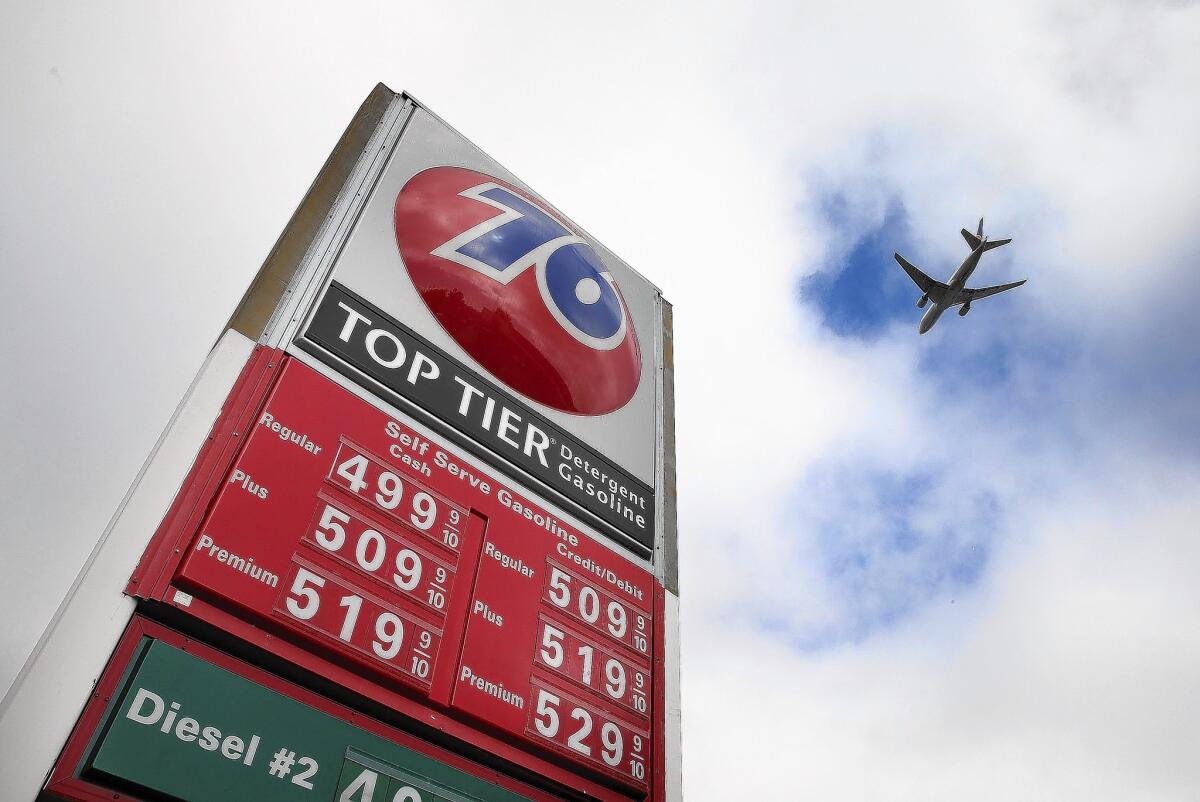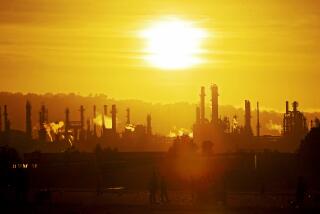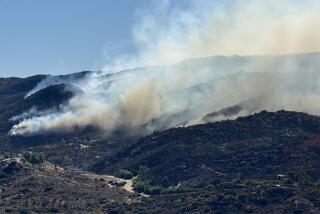Democratic bill would slow California’s effort to curb climate change

Political-economic fights at the Capitol never really end. They just morph into new incarnations.
Take, for example, the eight-year battle among industry, environmentalists and the administrations of Govs. Arnold Schwarzenegger and successor Jerry Brown over how to deal with threats of global warming.
Now, the conflict again is heating up.
Just before their July recess, a group of business-friendly Democratic lawmakers introduced legislation to slow California’s campaign to curb climate change.
Nine Assembly and Senate members, led by Assemblyman Henry T. Perea (D-Fresno), want to delay putting motor vehicle fuels under the state’s system for buying and selling the right to release greenhouse gases into the atmosphere.
Perea and colleagues worry that requiring refineries to buy credits could add at least 15 cents to the price of an average gallon of unleaded gasoline, which now tops $4 in many parts of the state.
To the frustration of environmentalists, the bill, AB 69, would postpone bringing vehicle fuel under “cap and trade” until Jan. 1, 2018.
“The cap-and-trade system should not be used to raise billions of dollars in new state funds at the expense of consumers, who are struggling to get back on their feet after the recession,” Perea said. “In some areas of the state, like the Central Valley, constituents need to drive long distances and they will be disproportionately impacted by rising gas prices.”
The Brown administration, while guarded in its comments, shows little interest in revising state plans to implement the state’s landmark 2006 law to combat climate change, still known by its old bill number, AB 32.
“Having transportation fuels under the cap is essential for California to achieve its AB 32 greenhouse gas emission reduction goals,” said David Clegern, a spokesman for the California Air Resources Board. The agency is charged with cutting carbon releases to 1990 levels over the next six years.
The governor’s office hasn’t said whether Brown would veto Perea’s bill should it get to his desk.
Environmentalists and pro-AB 32 lawmakers have been quick to respond negatively to Perea’s proposed legislation.
Oil companies should not be given an exemption from the law,” 34 legislators wrote to Brown in a June 27 letter. “Business as usual is unsustainable when it comes to reliance on fossil fuels.”
Good but not great
California’s economy grew 2% last year, ahead of the national economy’s more sluggish 1.8%, said Stephen Levy, director of the Center for Continuing Study of the California Economy in Palo Alto. He cited data from the U.S. Bureau of Economic Analysis.
But the Golden State badly trailed rival Texas, which posted 3.7% annual growth, according to the bureau.
The nation’s fastest-growing states in 2013 were North Dakota at 9.7% and Wyoming at 7.6%. Both states are enjoying energy-related booms.
Twitter: @MarcLifsher







